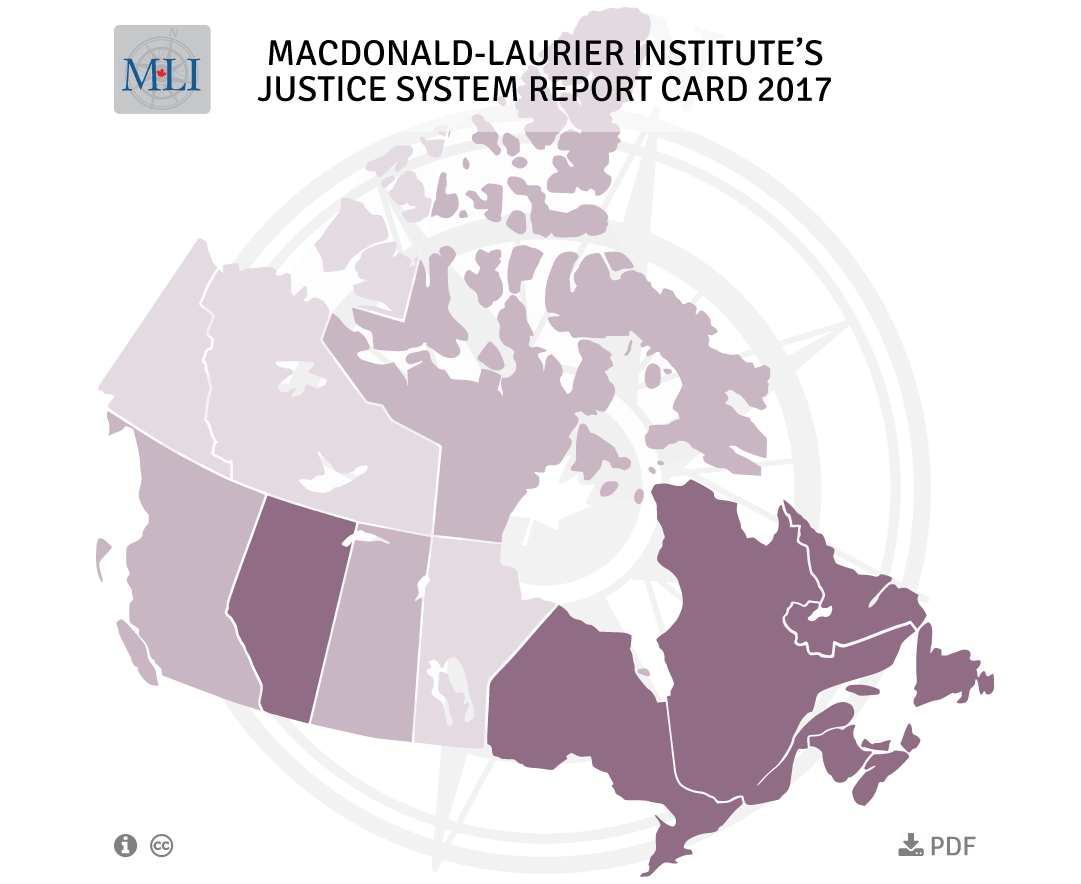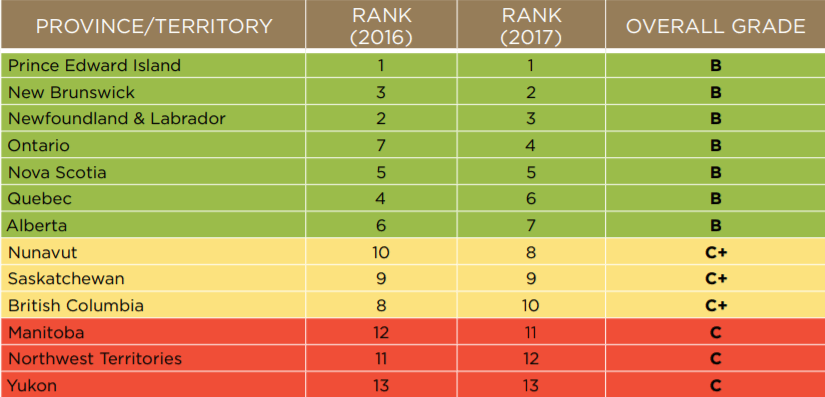Click here to view MLI’s interactive Canada-wide map, detailing the latest criminal justice system grades for each province and territory.
OTTAWA, ON (March 5, 2018): Canada’s criminal justice system is facing a litany of serious challenges including significant under-reporting of crime by victims, delays and inefficiencies, rising costs, and considerable over-representation of Indigenous people in prison, MLI Munk Senior Fellow and law professor at the UBC Peter A. Allard School of Law Benjamin Perrin and Rick Audas, health statistics and economics professor at Memorial University, said today.
The Macdonald-Laurier Institute has released its second-edition Report Card on the Criminal Justice System, which brings these issues to light using quantitative data and a systematic approach to measuring the strengths and shortcomings of the criminal justice system in each province and territory. The report, co-authored by economist Richard Audus, enhances and updates MLI’s popular initial Justice Report Card, first launched in 2016. The findings are striking.
In addition to updating provincial grades, the second Justice Report Card examines nationwide statistics to explain how Canada is doing as a whole.
“Nationally, there are some positive trends, including declining crime rates, fewer police officers required per capita, and rising criminal legal aid expenditures per crime,” said Perrin. “However, it is concerning to see worsening rates of police solving non-violent crimes, rising costs, and significant over-representation of Indigenous people in prison.”
The assessment of each province and territory’s criminal justice system is based on five major objectives: public safety, support for victims, costs and resources, fairness and access to justice, and efficiency. There is a significant variation between provinces in performance on these indicators. Some of the highlights of the report include:
- Ontario was the most-improved jurisdiction – its ranking improved dramatically to 4th place (from 7th place), with an overall grade increase to a B (from a C+), due to relative improvements in public safety, and fairness and access to justice;
- Quebec’s ranking declined to 6th place (from 4th place), owing to a relative decline in fairness and access to justice;
- British Columbia’s ranking declined to 10th place (from 8th place), due to a relative decline in public safety, and fairness and access to justice;
- Manitoba was the worst performing province and the Yukon was the worst performing territory;
- The territories have shockingly high rates of crime per capita – far exceeding those in any of the provinces (there is 10 times more violent crime per capita in Nunavut than in Prince Edward Island); and
- There are disproportionately high levels of Indigenous incarceration relative to the population in every jurisdiction in Canada, but they are particularly acute in Alberta, British Columbia, Ontario, Saskatchewan, and Manitoba.
“Ontario’s criminal justice system has made some notable improvements whereas Quebec and British Columbia declined,” Perrin said. “We hope this report card will spur necessary reforms to make our criminal justice system more efficient, fairer, and better serve the needs of victims.”
For further information, media are invited to contact:
Cole Hogan
Communications Manager
613.482.8327 x105
cole.hogan@macdonaldlaurier.ca






